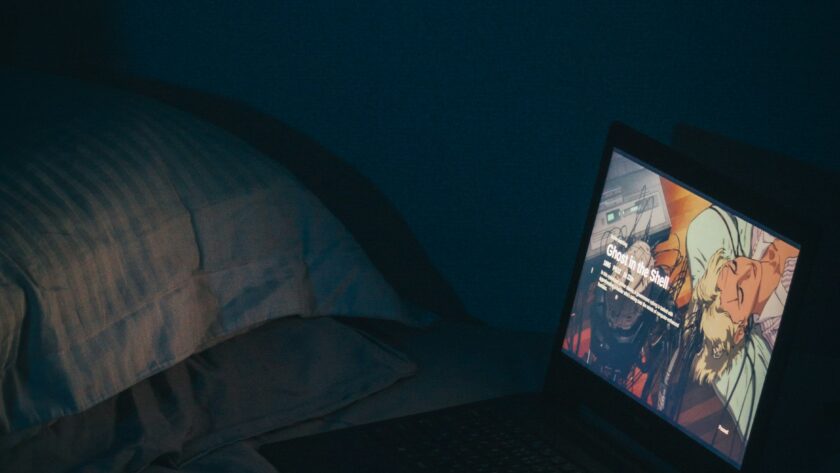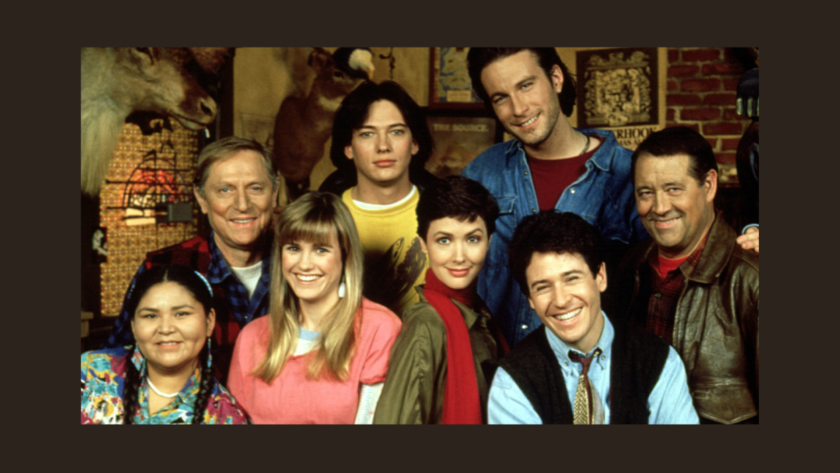What sort of role do script editors play in the development process?
The script editor’s role is changeable, really, depending on the level of script editor you are. To a certain extent it’s what it says on the tin – you edit scripts. That’s the most essential task that the script editor does, but it also involves a whole range of different things which can change with your seniority and where you work.
When I first started you were meant to go into the industry as an assistant script editor, but in my case the company where I worked didn’t have that option or budget, so I went straight into editing a project that was about to go live on television. However, you usually start by assisting someone. In that case, you’re helping them to just read the script, providing them with notes, doing research for them etc.
The actual script editor might research ideas, because you could be required to generate a project. Your executive producer might say that the BBC really want a new crime drama, or a new precinct drama set in either a hospital or with firemen, or whatever. Then they might ask you to go out there and find a writer who’d be really good at doing that. So, you’d then go off and think about that, and then set up a meeting with a writer to get them interested in working for you. Or else you might, as a development script editor, come up with your own ideas and then look for a writer to work with on that.
Script editors usually start by assisting someone. In that case, you’re helping them to just read the script, providing them with notes, doing research for them etc.
– Matt Telfer
Script editors need a good knowledge of who’s out there writing
You need to have a very broad knowledge. I always advise people that it’s great to go to the theatre as often as possible, because tomorrow’s TV writers are today’s fringe theatre writers. When I first started out, I was keen to work with Dennis Kelly. He’s really big now and has written quite a few TV series. He’s written films too. Back then, he was doing plays above a pub kind of thing, and then bigger theatres. That’s how a lot of big sought-after screenwriters started. I would go to the theatre a lot. It didn’t matter whether it was in London or in Edinburgh or wherever. New York too!
It’s a question of getting Time Out and looking at the best places for new writers. If you’re in London, I suppose those would be the Finborough and the Gate. But nowadays, actually, the fringe theatre has changed. It used to literally be just a room above a pub with half a light on the stage. It was a very cheap way for writers to get their work out there.
Now it’s a little bit more professional, I suppose, and there’s also a big drive to promote the work of new writers. So, every kind of theatre would be useful. Just look through the listings and if there’s a new writer that you haven’t heard of, then go and see them.
If you genuinely like their work it’s great to try and make a relationship with them, because that can stand you in great stead. At one of the companies I was working for recently as a freelancer, a producer turned up one day and she’d got a connection with quite a big writer that’s quite hot at the moment. People wanted to work with him. She said, ‘well, I’ve been talking to him about these different ideas.’ The company pretty much hired her on the spot, because they really wanted to work with that particular writer and she had an in.
To cut a long story short, it’s great to get as many contacts as you can, but always be aware of who you’re genuinely, passionately interested in rather than faking it.
– Matt Telfer
So, it’s just great to just broaden your knowledge of different writers. They don’t have to be in the theatre. A few of the writers that I’ve worked with and brought in, they’ve written novels – like Jeanette Winterson. We were looking for a children’s project, and she’s normally a writer of magic realism for adults, but she’d just started doing her first children’s book as a sort of favour to her godchildren. I’d read the book and had thought it was fantastic, and I read it to my own children who loved it, so I just approached her and said, ‘we’re looking for a writer for a children’s project. Can we meet up and talk?’ And that’s how that developed.
To cut a long story short, it’s great to get as many contacts as you can, but always be aware of who you’re genuinely, passionately interested in rather than faking it. If you’ve got a connection with them and then you sort of become friends, you can share ideas and enthusiasms, but also be aware that there’s no point pursuing a writer who no one else is really interested in. You’ve got to have an awareness of their marketability and how a broadcaster might respond to them. There’s no rush on that. Just take your time as much as you want.
Approaching agents and writers
Approaching agents is a good thing to do – they’ll then sometimes bombard you with new writers! You can say that you’re doing research on new writers in order to get some freelance projects together to take to different TV companies, and they’ll often be happy to send you a lot of their new writers that they’ve got on their books who’ve maybe done an episode of a long-running series or soap, or have just graduated from a film school or whatever. They’ll be on their books and very keen to get out there.
Another approach is to get in touch with different film companies and TV companies and ask about doing script reading for them. While doing that you get a database of different writers and also build up different contacts in the industry.
Doing courses like the John Yorke Story one is great, because you learn a lot and also that’s something extra that makes you stand out from other people who want to do script editing.
– Matt Telfer
Is script reading the way people tend to start?
I think it’s very different now to when I began my career. I started out working in theatre. I was directing and adapting/translating plays. To be blunt, that didn’t really bring in that much money. I was just starting, I had a new family, children, and so I actually became a copywriter for a while. I went over to advertising in London and abroad, and then realised that I didn’t enjoy doing that.
So, I just got in touch with a load of different companies to start off as a script reader. That’s how it started for me, but it starts in different ways for different people. Some people actually take a route that involves admin or research. Or they could go the factual route first of all, so they might work in a factual department or a factual company like Spun Gold and make some great factual programmes. Then they move across into drama.
Somebody I know ended up as the head of drama commissioning at a channel, but she started off as an admin coordinator in a busy drama department. She got a whole load of knowledge and contacts through that. She was there every day, getting emails from different writers, talking to the production teams, and she just got a really good grounding in the industry.
Some other script editors start out in a long-running serial, like Casualty or Holby City or EastEnders. Those shows have got a big turn over so they’re good places to start. A lot of people start as script editors there and then move to different shows or into independent companies.
The general gist is that there’s no particular route. I’ve noticed that new script editors these days all have different backgrounds. Some people have established themselves in factual and now want to come over into drama, while some other people are coming from a background of being administrators or researchers. Some people have just done courses in screenwriting and want to have the editorial thing as an extra string to their bow. So, there are many different routes. There isn’t any particular right answer, so don’t think that you’re not in the position to do it. Anyone can do it from any particular background.
Is there an ideal age to get into script editing?
In terms of age, if you look at the Story for Script Development course, some people are in their 20s, but not exclusively. Age shouldn’t necessarily hold anyone back. If you’ve got the right skills, the right contacts, the right ideas and the right passion for it, then different TV companies are going to want to work with you, whatever your age.
Freelance script editing
Well, for a lot of this stuff there aren’t any definite answers. However, I think that freelance normally comes afterwards, once you’ve worked for a certain company and you’ve got some experience and you’ve got some contacts. In the initial stages it’s good to try and make different contacts – contacts with writers and contacts with companies. There’s something called The Writers’ and Artists’ Yearbook, and when I first started out I was advised to get that book.
In there you’ll see who to contact at the different TV companies, so that’s what I did. I found Yorkshire Television and there was a contact name. I got in touch with them, and that’s how I got my first job in TV. Try to set up meetings with people as well. There will be a lot of people who either don’t respond to your email or just knock you back, but you’ve got to develop quite a thick skin and just keep on at it.
Doing courses like the John Yorke Story one is great, because you learn a lot and also that’s something extra that makes you stand out from other people who want to do script editing. But as I said, there isn’t any particular route or path that you have to take.
Making contacts, knowing the market and putting yourself out there
They’re pretty much the essentials. And also, it goes without saying, you need to watch a lot of television, so you’ve got that in your arsenal. It’s good for people to hear that you’ve seen a certain series that worked really well compared to another TV series that just didn’t seem to fly. Why was that? What was the difference between them?
One of my first interviews was for quite a big job, which had been set up for me by somebody through a smaller job that I was doing. I went along and I was totally unprepared. I knew the shows that the company did, but I didn’t particularly like them, so I didn’t really watch them before I went to the interview. That was disastrous – I look back at that now and I still blush about it because they were asking me questions about their shows and I just didn’t know how to answer. It was excruciating.
Some people want you to take them firmly by the hand when you’re giving them script editing notes, whereas some need a very light touch and for you to gently steer them in certain ways.
– Matt Telfer
So, if you genuinely don’t like the programmes that a certain company makes, then don’t apply for a job there. If you do want to work for them then bite the bullet and watch their programmes, and get a knowledge of the kind of things that they’re interested in: the kind of structure they use, the kind of characterisation they use in their shows. Know about them so you can talk about them.
What to know when starting out
Personally, I wish I’d had a sort of structural awareness. Since becoming a tutor on the John Yorke Story course I’m very much aware of how vital that is, and I do genuinely wish that I’d had that kind of rigorous knowledge when I’d first started out.
Another thing would be the vocabulary that you need to use when you’re talking to a writer. I managed to really insult one of the first writers that I worked with. I’d gone to the company and I thought I was going to be assisting someone, but then various things happened so I was just launched straight into the script editor role. I was just a little bit clumsy in the way that I expressed myself to the writer, and I managed to really, really, really annoy him. It was all sorted out later, because the points I was actually making were valid, but still…
We had a very good executive producer, and she calmed the writer down and we all looked at the notes again. He agreed with every one of them and found every single one of them useful, so it was okay in the end. Really, I’d just insulted the writer in the way that I’d expressed things. So, it’s important to observe other script editors, learn how a script works and learn about the different writers.
Some people want you to take them firmly by the hand when you’re giving them script editing notes, whereas some need a very light touch and for you to gently steer them in certain ways. They don’t really want to hear your actual opinions about something. They don’t really want you saying, ‘oh I think you should restructure it and do this and that and this to make it more dynamic.’ They don’t want to hear that.
Different writers work in different ways, and as a script editor you’ve got to be very agile and jump between different preferences.
Career progression for script editors
Where you take your career is totally up to you. I didn’t really want to go into production because I’m not that interested in it. I also like to be around my children, and be there when they get in from school, so I wanted to work from home quite a lot – which is what I’ve always been able to do throughout my career. So, I’ve always chosen to work in development.
A lot of people I know who started as assistant script editors made it their priority to work in production, so they focused on that. They went from assistant script editor to script editor, then to assistant producer on a show, then to producer on a show. Eventually they became Head of Drama Commissioning at the BBC or something else big like that! That’s the route that they took because that was their personal path they wanted to follow. It can go whichever way that you want it to go really.
However, if you’re working as a script editor and you like it, you can stay within that role for as long as you want. I know a lot of people who, year after year, series after series, script edit and give analytical notes on scripts and projects, and they’re very happy doing that and everyone’s content. Then they become experts in their field because they’ve stayed where they are, and they want to stay there. So, it’s up to you to make your own decision on that.



